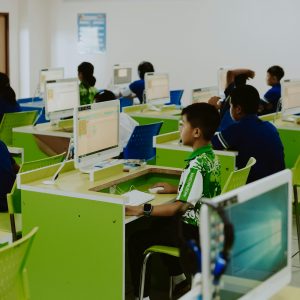Trump’s USAID closure puts Indonesia’s research, education at risk
Indonesian Academic Freedom Caucus warns of severe impact, urges government to seek alternative funding
JAKARTA, Indonesia (MNTV) – The Indonesian government is preparing to navigate the fallout from U.S. President Donald Trump’s decision to shut down the United States Agency for International Development (USAID).
Experts warn that Trump’s move could significantly disrupt Indonesia’s education, research, and social development sectors.
Satria Unggul, Coordinator of the Indonesian Academic Freedom Caucus, cautioned that the closure of USAID would have widespread consequences for partner countries, including Indonesia.
He stressed that USAID has played a vital role in supporting initiatives in health, education, research, anti-corruption, and law enforcement, helping the country tackle pressing socio-economic challenges.
“The absence of USAID assistance will not only hinder research but also reduce our ability to address social and economic issues effectively,” Satria told news website Tempo.co.
Over the years, USAID has provided significant funding for research and development projects across Indonesia, particularly through programs like USAID PEER (Partnerships for Enhanced Engagement in Research) and USAID Integritas.
These initiatives have been instrumental in fostering innovation, strengthening Indonesia’s academic institutions, and building partnerships with international researchers.
Satria warned that without these funds, many research projects could be halted or significantly delayed, affecting advancements in technology, environmental studies, and public policy research.
“USAID programs have helped countless Indonesian researchers and universities produce critical findings, many of which have influenced national policies and technological advancements,” he explained.
He further highlighted the impact on law enforcement initiatives, where USAID has been actively involved in funding programs to combat corruption, improve governance, and strengthen transparency in government institutions.
The sudden withdrawal of these resources could weaken Indonesia’s anti-corruption efforts, potentially creating gaps in accountability and law enforcement.
Health and higher education at risk
Satria also emphasized the potential disruption to health initiatives supported by USAID, particularly in areas like maternal health, disease prevention, and rural healthcare programs.
Many of these initiatives have directly benefited local communities by improving access to medical services and funding vaccination programs.
“Health and education programs are often among the hardest hit when foreign aid is cut. The government must act swiftly to ensure that critical services continue without interruption,” he said.
Indonesia’s higher education sector, which has long benefited from USAID funding, could also face financial constraints. USAID has historically provided grants and scholarships to Indonesian students and faculty members, enabling research collaborations with prestigious institutions abroad.
The termination of these programs could limit opportunities for students and researchers to engage in global academic exchanges.
Satria urged the Indonesian government to diversify its funding sources and reduce dependency on a single donor.
While acknowledging that the U.S. has the right to decide how it allocates its funds, he stressed that Indonesia must actively seek partnerships with other countries, private sector donors, and international organizations to fill the funding gap left by USAID’s closure.
“Indonesia should not allow its research and development progress to stall simply because one major donor has withdrawn. We must look towards alternative partnerships, including collaborations with the European Union, Japan, and regional organizations,” he stated.
Satria’s remarks underscore growing concerns among Indonesian academics and policymakers regarding the broader implications of Trump’s decision.
As the government formulates its response, experts warn that failure to act swiftly could result in setbacks across multiple sectors, affecting Indonesia’s long-term development goals.










